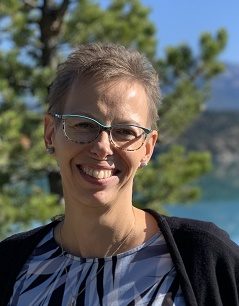
With the real estate market witnessing rapidly rising house prices and increasing mortgage rates, the dream of owning a first home may seem unattainable. To help you with your down payment, the First Home Savings Account (FHSA) has been introduced.
1.Who Qualifies for an FHSA?
- Canadian residents age 18 to 71 who do not currently own a home or have owned a home in which they lived in the prior four calendar years.
- The FHSA must be closed by December 31 in the year you turn 71 OR following the 15th anniversary after you open your first FHSA, whichever is earlier.
2. What are the Contribution Limits?
- You can contribute up to $8,000 per calendar year (refer to section 3 for further details on this).
- The lifetime contribution limit is $40,000.
3. How is Contribution Room Calculated?
- You must first open a registered FHSA for your contribution room to start accruing.
- Withdrawals unrelated to a home purchase do not reinstate contribution room for the following year.
- Unused portions of your annual contribution limit can be carried forward, provided they don’t exceed $8,000.
- The maximum contribution in a calendar year is $16,000.
4. What are Qualifying Withdrawals?
- You need a written agreement to buy or build a home in Canada by October 1st of the year after your withdrawal.
- You must have the intention to make the home your principal residence within a year of purchasing or building it.
- An exception allows qualifying withdrawals within 30 days of moving into your home.
5. What are the Tax Implications?
- Contributions are tax-deductible, similar to Registered Retirement Savings Plans (RRSPs).
- Unlike RRSPs however, contributions made within the first 60 days of a calendar year do not attribute to the previous tax year.
- Exceeding the annual contribution limit results in a 1% tax penalty per month.
- FHSA first home qualifying withdrawals are tax-free. Be sure to use the correct forms.
6. Can I use the FHSA with an HBP to help fund my first home?
- YES!
- The HBP allows for a maximum withdrawal of $35,000 from your RRSP, whereas the FHSA has no maximum.
- The HBP does have repayment terms. If the funds aren’t returned to your RRSP as per the repayment schedule, that portion will be deemed to be taxable income in the year it was to have been repaid.
7. Are there other ways to use my FHSA?
- If the funds remain unused 15 years after opening the account, you can transfer the balance to an RRSP on a tax-free basis.
- Failure to transfer the funds by December 31 following the 15th anniversary after opening your first FHSA (or by December 31 in the year you turn 71) will result in the account balance being declared as taxable income.Here’s a link to Canadian Revenue Agency on FHSA.
Advisory
As your Chief Financial Officer, I am here to help guide you through the various areas of wealth creation, including how to effectively save for your first home. Helping you understand your money and assisting you in making smart financial decisions about your debt repayment, insurance protection, tax management and wealth, are just some of the ways that I work as your fiduciary.
Have more questions than answers? Educating you is just one piece of being your personal CFO that we do. Call (780-261-3098) or email (Roxanne@C3wealthadvisors.ca) today to set up your next conversation with us.
Roxanne Arnal is a former Optometrist, Professional Corporation President, and practice owner. Today she is on a mission of Empowering You & Your Wealth with Clarity, Confidence & Control.
These articles are for information purposes only and are not a replacement for personal financial planning. Everyone’s circumstances and needs are different. Errors and Omissions exempt.

ROXANNE ARNAL,
Optometrist and Certified Financial Planner
Roxanne Arnal graduated from UW School of Optometry in 1995 and is a past-president of the Alberta Association of Optometrists (AAO) and the Canadian Association of Optometry Students (CAOS). She subsequently built a thriving optometric practice in rural Alberta.
Roxanne took the decision in 2012 to leave optometry and become a financial planning professional. She now focuses on providing services to Optometrists with a plan to parlay her unique expertise to help optometric practices and their families across the country meet their goals through astute financial planning and decision making.
Roxanne splits EWO podcast hosting duties with Dr. Glen Chiasson.







